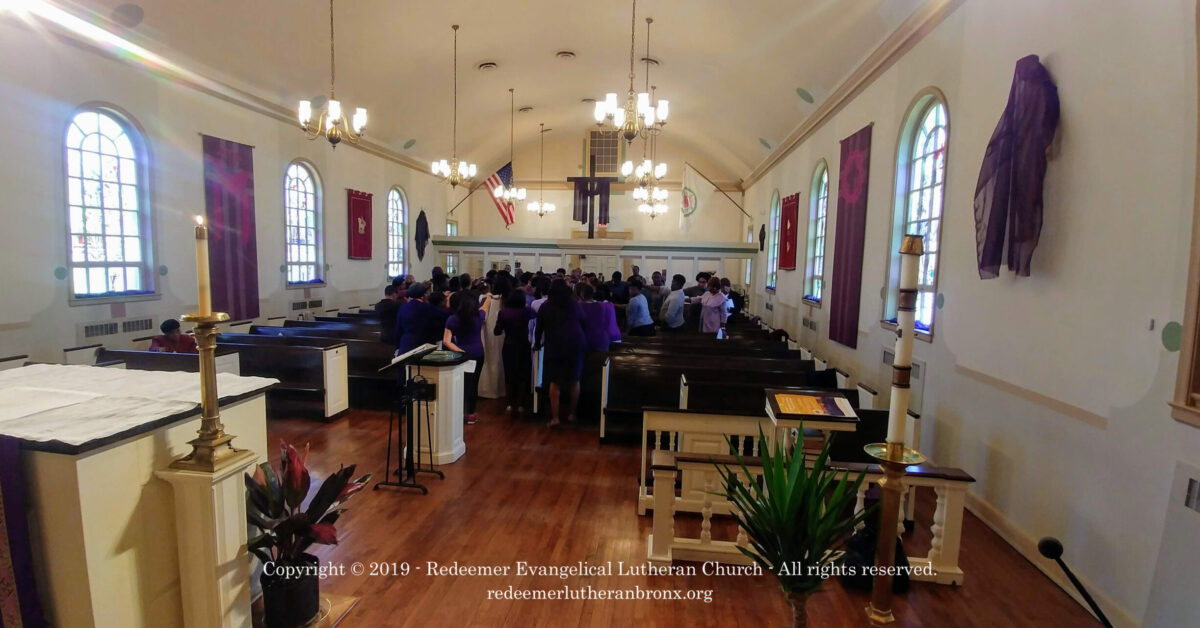Congregational Transformation: Growing Deeply, Broadly, and Widely
In Paul Hoffman’s words, the catechumenate creates a climate of expectation in the life of a congregation. That climate of expectation blossoms into the longing for personal and congregational transformation that is both deep and wide. It transforms individuals and congregations in deep ways touching on the center of their identities. It transforms in broad and wide-reaching ways, both by incorporating more into the assembly and by the myriad number of encounters that the baptized and the assembly have with strangers in the world.
Growing Deeply
Congregations engaged in faith formation patiently seek to transform the believing of newcomers and oldcomers alike. Believing entails the reorientation of one’s reality and life story toward inclusion into the story of God the Creator in His Son Christ Jesus by the power of the Spirit. Believing is a lifelong endeavor of trusting in God’s promise for the whole creation, and the individual as part of it, to bring about the restoration of the creation through his living Word. It encompass the whole person—body, mind, and spirit—within the body of believers.
Those who belong to the believing community transform not only their believing and their belonging, but also their behavior. One of the reasons that the congregations we researched ask that all newcomers walk through their catechumenate—unbaptized, profession of faith, or transfers—is because they want to shape a deep transformation that leads to the newcomer and oldcomer alike living faithfully within this community’s patterns of life.
Measuring the depth of transformation should reflect the ongoing, lifelong apprenticeship of disciples that the catechumenate seeks to foster. Such measures could include:
- worship attendance and participation in the sacraments
- the vitality of congregational ministries, ordained, commissioned, and lay
- the intentionality of personal and congregational evaluation and discernment of the disciple life
- flexibility of congregational ministries and faith formation to adapt to the congregational context
- the involvement of laity in the faith formation process
- commitment to one’s vocations
- the degree of following the call to live in love by proclaiming Christ to and serving him in others
- how often a congregation eats together
That is only a partial list. All of those measures could give an indication as to how the faith formation process is deeply transforming a congregation’s life.
Growing Broadly and Widely
The catechumenate’s impact in transforming lives and assemblies also ought to be measured by the number of persons incorporated into the assembly’s life. A well-practiced catechumenate should lead to the incorporation of more outsiders and strangers into life together. Yet even such growth is broader and wider than we might imagine. Personal and corporate encounters with the stranger in inquiry and on the edges of the catechumenate widen the catechumenate’s transformative impact. Such encounters run deep into the world surrounding the congregation as the baptized bear witness to their life together in their workplaces and play spaces, their learning communities and living communities. A community transformed by the catechumenate reaches into the world around it—both individually and corporately—with peace and justice. As Paul Hoffman indicates, “The tasks that one might do to meet the needs of others grow out of who one perceives oneself to be in Christ, and—grace being the gift that keeps on giving—the things that one does further form one as a disciple” (Faith Shaping Ministry, 87). Transformation that spreads far and wide.
In the end, faith formation is not a program, not even a set of processes or practices, but a way of life. Through its life of community and liturgy, teaching and preaching, witness and service God transforms the baptized and the community, deeply and broadly.
